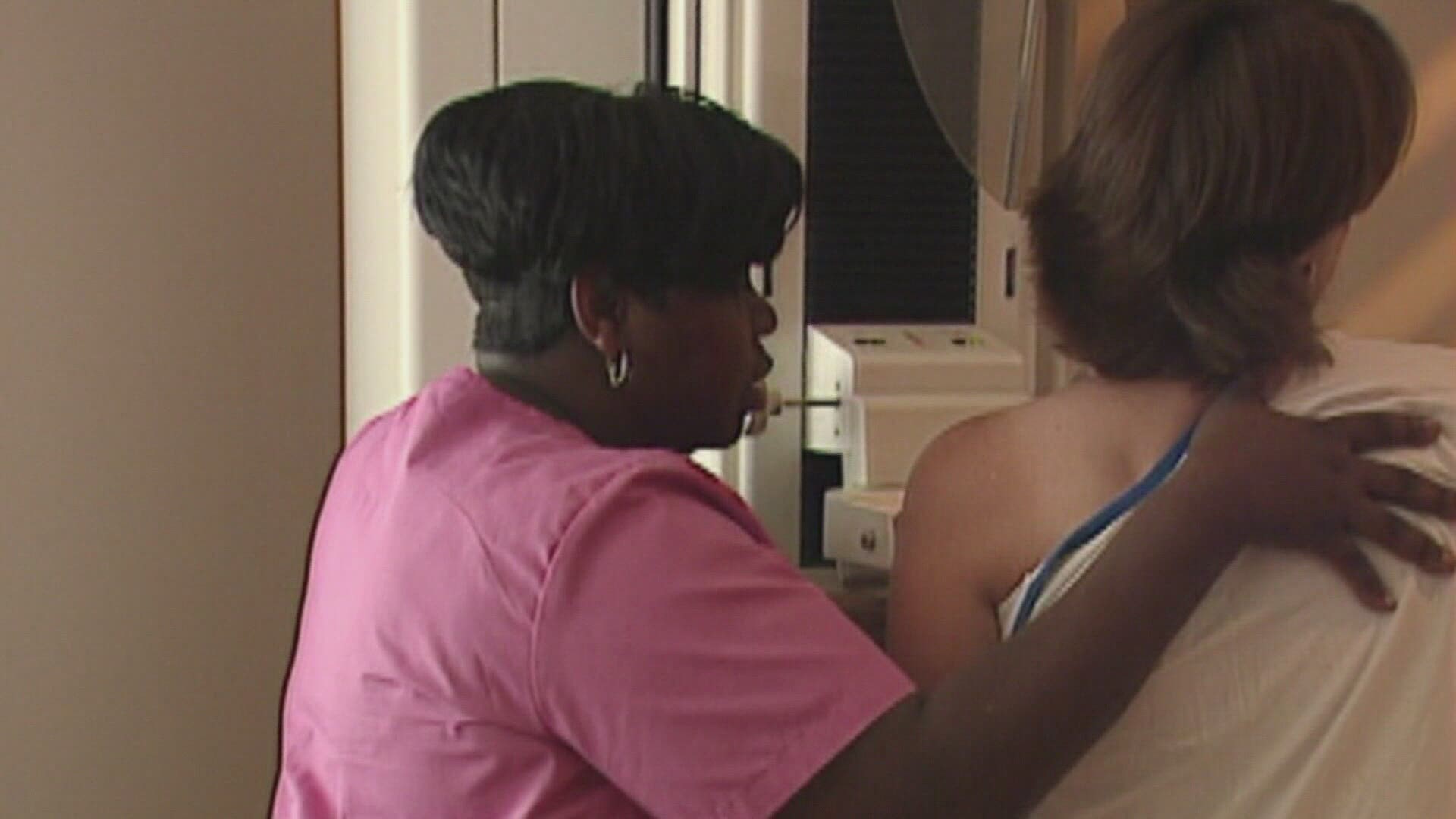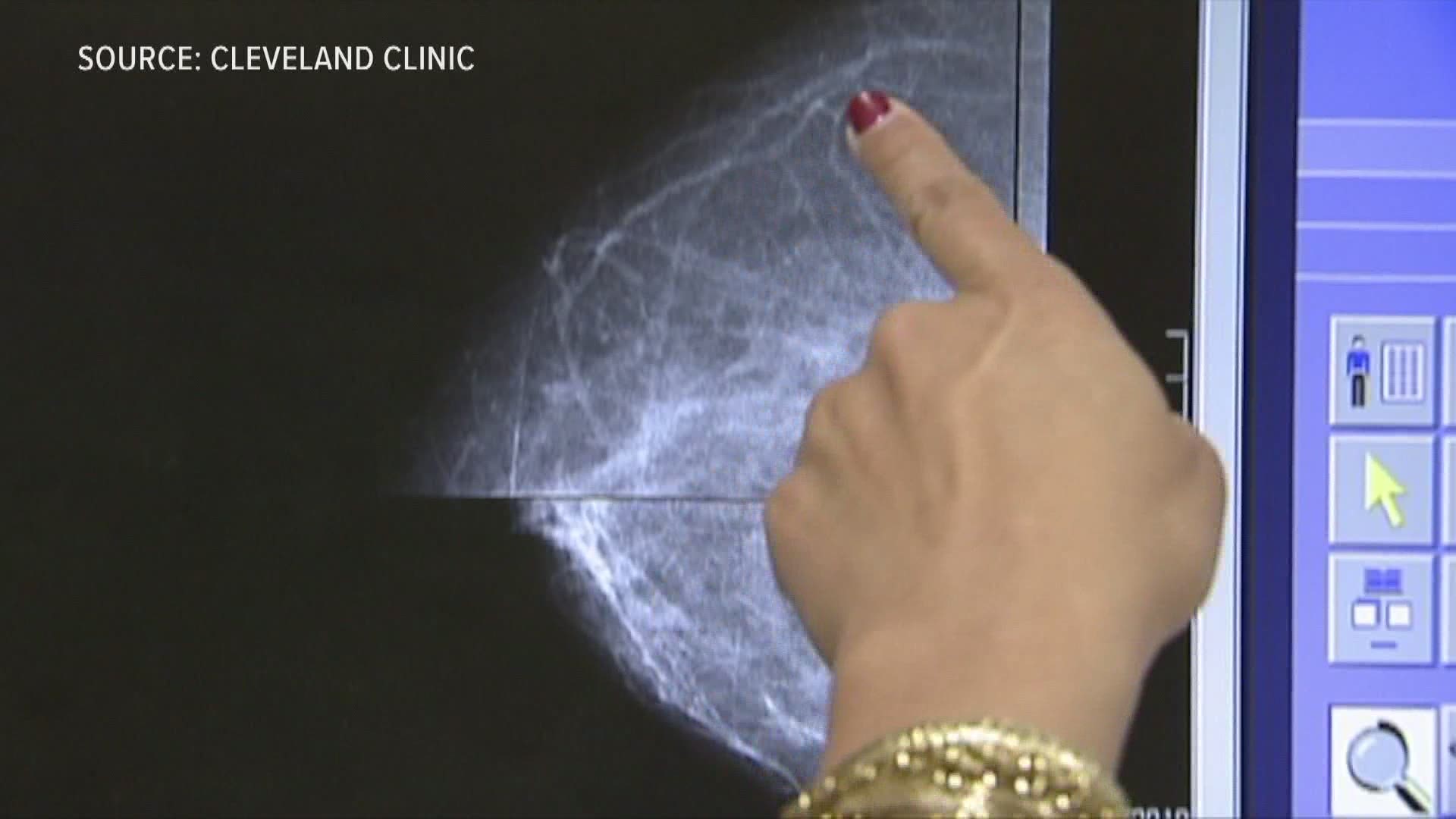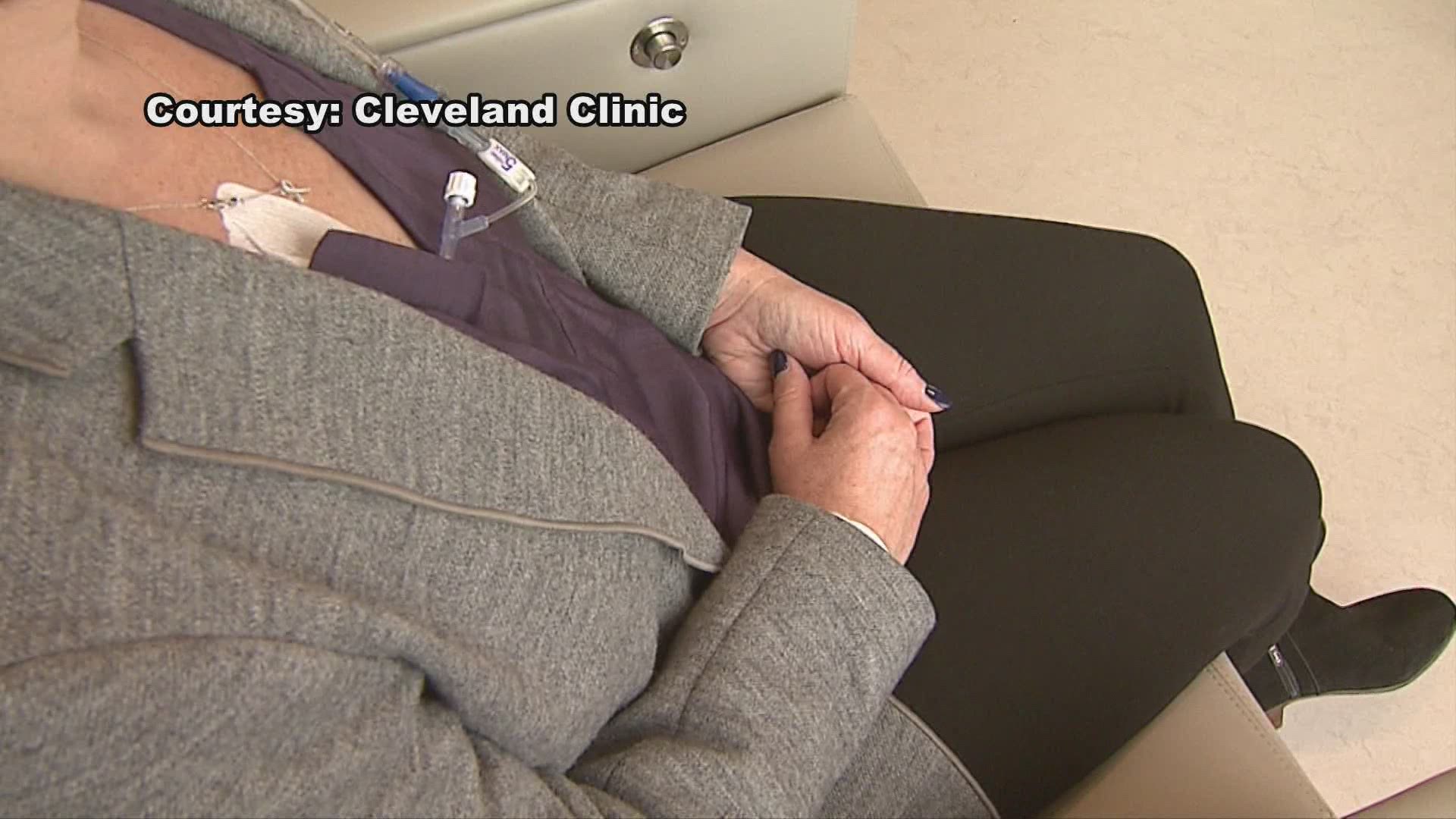LANSING, Mich. — In Michigan, it is estimated there will be 8,800 new cases of breast cancer and that 1,380 women will die from the disease in 2020.
To help continue to raise awareness of this disease, Gov. Gretchen Whitmer has proclaimed October 2020 as Breast Cancer Awareness Month. In an effort to promote early diagnosis and reduce health disparities, the Michigan Department of Health and Human Services (MDHHS) is providing information on what women can do to detect breast cancer early, as well as understand their risks and the lifestyle-related factors that can reduce them.
"Women are most likely to get breast cancer as they age, if they start menopause later, and some lifestyle issues can also impact your likelihood to get breast cancer,. So, it's really important for women to make sure they're taking care of themselves," Ann Donnelly, vice president of care management at Priority Health. "Be familiar with your breasts. Look for any changes. Always take some time to look in the mirror and see does your breast look different. Does it seem is the skin changing? Is there a dumpling? Report any changes to your doctor immediately."
Breast Cancer is the second most common cancer in American women, behind skin cancer. On average 1 in 8 women will be diagnosed in her lifetime. Of the Each year in the United States, more than 250,000 women get breast cancer. Of that number, 42,000 women die from the disease.
“Breast cancer has devastated thousands of Michigan families, and during breast cancer awareness month, I am hopeful that Michiganders everywhere will help raise awareness and educate themselves on how to detect breast cancer early,” Gov. Whitmer said. “We must also recognize that the mortality rate for breast cancer is nearly 40 percent higher for Black women than white women. Every Michigander, no matter who they are, deserves access to quality, affordable care that will help prevent disparities like this. That’s why I have made a commitment to address health disparities in Michigan, and why I am fighting to protect the Affordable Care Act from Republican attacks.”
“It’s important for women to know their risk for breast cancer and to talk to their health care provider about screening,” said Dr. Joneigh Khaldun, chief medical executive and chief deputy for health at MDHHS. “As women, our risk for breast cancer increases as we get older. Having dense breast tissue, which can mask or hide breast cancer, increases your risk as does having a personal or family history of breast cancer.”
African American women are more likely to be diagnosed at a younger age than white women and diagnosed at a later stage. Compared to white women, African American women also have a higher death rate from breast cancer and across all stages of cancer diagnosis, they have poorer survival rates. Factors that may contribute to this include barriers to early detection and screening, access to clinical trials and the higher likelihood of being diagnosed with a more aggressive form of cancer known as triple-negative cancer.
Getting regular breast cancer screenings and focusing on healthy behaviors can reduce risk, including:
- Increasing physical activity
- Maintaining a healthy weight
- Quitting smoking
- Limiting alcohol
Being tested for breast cancer is important. The U.S. Preventive Services Task Force, the National Comprehensive Cancer Network and the American Cancer Society recommend:
- Women should be able to start screening as early as age 40. Talk to your health care provider about when you should begin screening.
- Women who are more at risk should begin screening at age 40.
- Women with an average risk of breast cancer – most women – should begin yearly mammograms by age 45. All women should begin mammography screening by age 50 at the latest.
- Breast exams, either from a medical provider or self-exams, are no longer recommended.
"First, the earlier you can find any type of cancer, the better your outcomes are likely to be, and the less invasive and the less traumatic your treatment will be. 40% of breast cancer is detected by the woman herself," says Donnelly. "I think the second thing is to have hope, because again, this is more treatable every year. So it's going to be scary, and it's going to be a journey, but more women come out the other end with a successful outcome than ever before.
Women should also know their family history of cancer. Approximately 5-10% of breast cancers are hereditary – meaning breast cancer runs in the family. There are approved medications for women who are identified at an increased risk for developing breast cancer (and not previously diagnosed). These women should discuss the risks and benefits associated with these medications, in addition to possible lifestyle changes, with their health care provider.
If you are uninsured or know someone who needs help paying for mammograms call 844-I-GOT-SCR (844-446-8727) for more information.
RELATED VIDEO:



